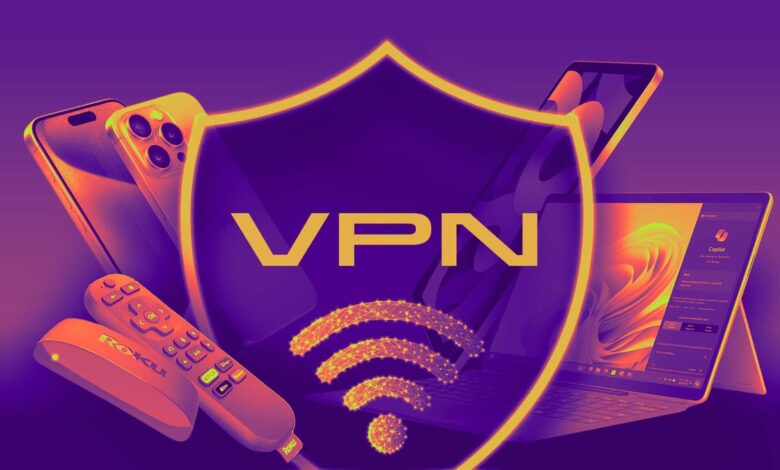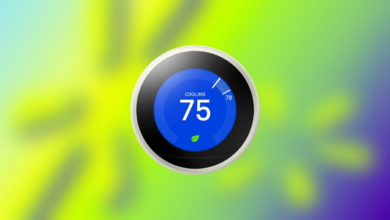Best VPNs for Multiple Devices

IPVanish
IPVanish offers unlimited simultaneous connections, so you can use a VPN on your phone, tablet, computer, streaming box, and other devices at the same time without any hassle. In comparison, many of its competitors remain selective; NordVPN and Proton VPN offer 10 simultaneous connections, while ExpressVPN only allows eight. What’s more, IPVanish offers VPN apps for almost every platform imaginable. It’s even one of the few companies to have an Apple TV app. Only a handful of providers, including ExpressVPN, NordVPN, PIA, PureVPN, FlowVPN, Tailscale, VPNIFY, SafeShell, and SwizzVPN, offer downloadable TVOS apps. There’s even a graphical user interface (GUI) for IPVanish’s Linux app, which is still a rarity.
We like that IPVanish’s apps are easy to use and straightforward. Whether you’re a seasoned veteran or a VPN newbie, you won’t be confused about how to turn it on. Its exceptional streaming support—we successfully unblocked Netflix, Disney Plus, Amazon Prime Video, and others—makes this an excellent VPN for entertainment. We found no leaks in our 2024 tests, but we did measure an average internet download speed loss of 44%, which is well below the fastest VPNs.
With servers in 56 countries, IPVanish falls well short of competitors like NordVPN (111), Surfshark (100 countries), and ExpressVPN (105). While we found servers close to ours, you’ll want to consult IPVanish’s server locations list to ensure it’s a VPN provider that meets your needs. You’ll pay $13 per month, $34 per year (before a price hike to $90 after your first 12 months of service), or $53 for two years (that cost jumps to $90 per year after 24 months). IPVanish is cheaper than NordVPN and ExpressVPN, but more expensive than Private Internet Access (PIA) and Surfshark. Ultimately, IPVanish is a decent VPN that you can use on almost any device, including your Apple TV, with no limits on simultaneous users. Other VPNs offer significantly faster speeds, more country locations, stronger privacy, and generally better value.
Read our IPVanish review.
Hotspot shield
With its user-friendly app design, split tunneling, and excellent geo-unblocking for streaming services, Hotspot shield is a decent VPN for casual users. It boasts a large network of over 3,200 servers in 80+ countries. Hotspot Shield uses only AES 2568-bit encryption for solid industry-standard privacy. However, its closed-source proprietary OpenSSL-based Catapult Hydra VPN protocol and US jurisdiction mean it’s not ideal for the more privacy-conscious. While Hotspot Shield supports 10 simultaneous devices, its disappointing privacy and transparency make it hard to recommend when its VPN rivals offer more perks, such as faster speeds, larger simultaneous device limits, and lower subscription costs.
Read our Hotspot Shield review.
TunnelBeer
TunnelBeer offers unlimited simultaneous connections without breaking the bank. It features 256-bit encryption, split tunneling, and several VPN protocols including WireGuard and OpenVPN, as well as IKEv2. However, TunnelBear falls short in many categories. Despite a hefty network of over 5,000 servers, TunnelBear only covers 47 countries. In our tests, the unreliable connectivity often resulted in a major drop in internet speed. Additionally, TunnelBear only supports a handful of platforms, such as Windows, macOS, Android/Android TV, iOS/iPadOS, and web browsers. We expect a Linux installer at the very least, and probably an Apple TV app at this point. If you need an affordable VPN for general use, TunnelBear is acceptable, but we recommend one of the best cheap VPNs instead, such as Surfshark, IPVanish, or PIA.
Read our TunnelBear review.




